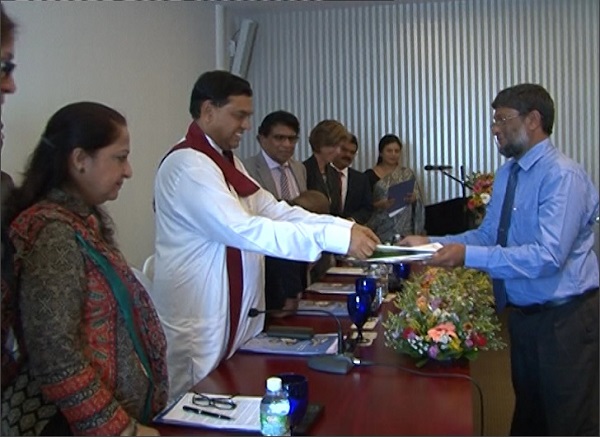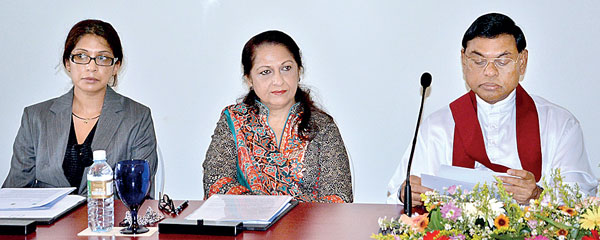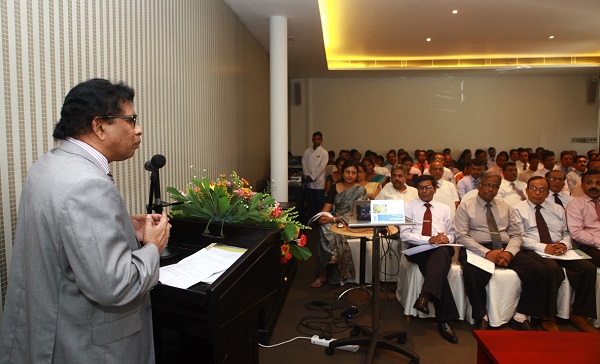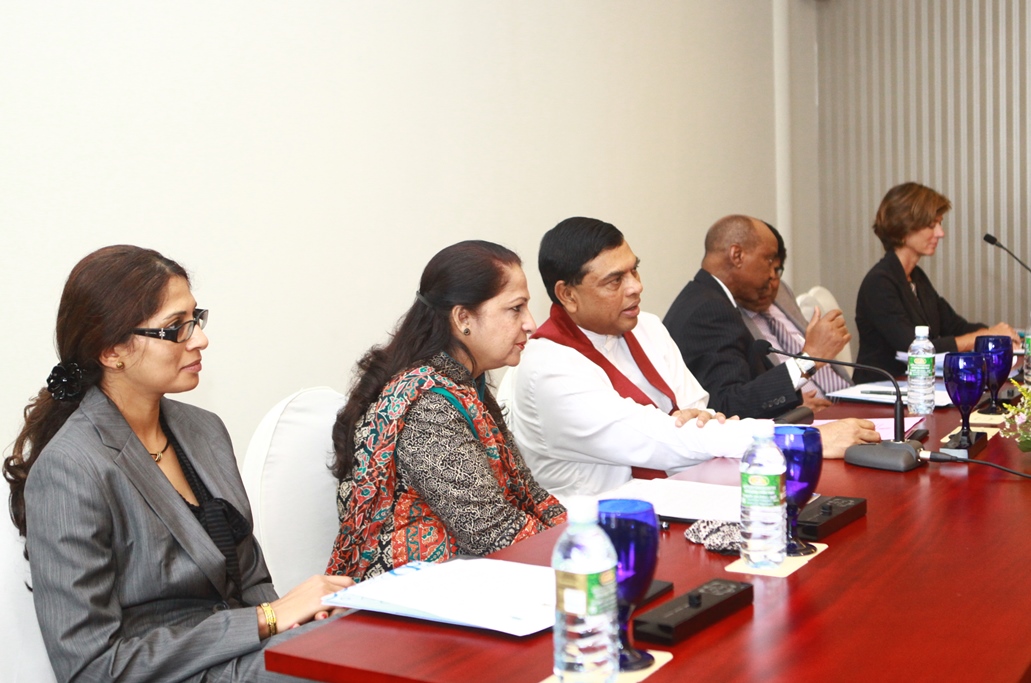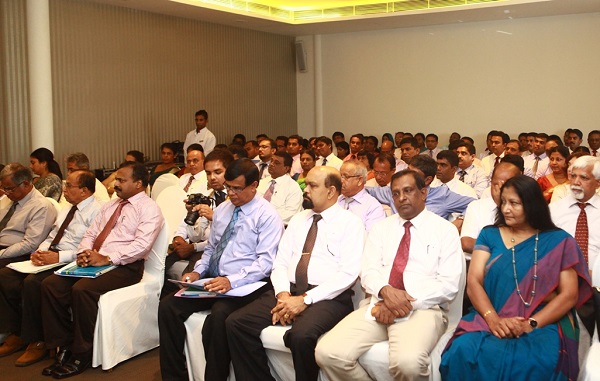The occasion was graced by Economic Development Minister Basil Rajapaksa, Resident Representative a.i., UNDP Sri Lanka Razina Bilgrami, Ministry Secretary Dr. Nihal Jayathilaka, Ismail Omer, Representative, World Food Program Sri Lanka, Beth Crawford, Representative, Food and Agricultural Organization, Sri Lanka, Divi Neguma Additional Director-General and Climate Project Director Jayatilaka Herath, UNDP Acting Assistant Country Director (Environment) Tharuka Dissanaike and representatives from other Government institutions and civil society organisations.
The official launch of the project was followed by an inception workshop. Given the impact of climate-related disasters on the vulnerable and the poor, the project aims to provide necessary technical and financial support to the Rural Development Unit and the Divi Neguma Department of the Ministry of Economic Development to safeguard the investments made in uplifting the rural livelihoods against climate related disasters and environmental changes.
The project titled, “Strengthening the Resilience of Post Conflict Recovery and Development to Climate Change Risks in Sri Lanka,’ will focus on building models of climate change adaptation in three districts- Puttlam, Kurunegala and Ratnapura Climate change threatens the sustainability of both these programmes. Already the impact of climate-related weather anomalies are manifest in reduced agriculture productivity, in crop losses, in flood and landslide related damage to infrastructure and in increased uncertainty for farm-based livelihoods.
The project seeks to address the climate-related problems (such as frequent drought, floods, landslides and coastal storms) posing a serious threat to the government’s objective of developing strong rural economies to bridge the urban-rural income disparity, particularly in post conflict zones.
This will be achieved through introducing adaptability to climate change into the design and implementation of both Gama Neguma and Divi Neguma. It will include developing institutional capacities to assess risk, design corrective measures and implement adaptation actions with community participation. To realise this, the project will work with a range of technical partners- such as the Departments of Agriculture, Agrarian Services, Irrigation, and Livestock and the Disaster Management Centre.(KH/SI)
